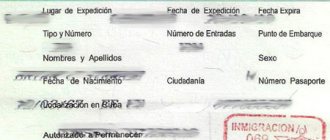Emigration of Russians to Thailand is gaining popularity every year. Spellbound Russian tourists enthusiastically talk about all the delights of the sunny Kingdom: the friendliness of local residents, low prices for housing and food, an abundance of cheap exotic fruits and year-round summer. However, many of those who decided to move were unable to settle down in this country and returned back. After all, living in Thailand for a Russian, despite the advantages that are so obvious at first glance, is not so easy. And the main difficulty faced by those who come here for permanent residence is finding a job.
Vacancies
The Thai government is very strict about keeping unemployment in the country low. For example, now it is no more than 5%, which is a very good indicator. The kingdom highly values highly qualified personnel, especially those who emigrate here from European countries. Therefore, there is work in Thailand for Russians. And the average salary in the country is 28,000 rubles (14,000 baht).
Freelancer
An ideal job, according to many who moved, which provides complete freedom of action. Freelancers do not need to obtain official permission to carry out their activities, or know English. Many freelancers create their own websites, run groups on social networks, write custom articles and do web design. Freelancing remains the most popular niche among Russians who have decided to move to Thailand. Earnings - no restrictions.
Work as a salesperson
A popular vacancy in Thailand that requires at least basic knowledge of the language. Employers are looking for distributors in pharmacies, latex outlets, fur salons and souvenir stalls. Finding such a job is easy - you just need to go to the shops or market and ask if anyone needs salespeople.
The disadvantage of such a vacancy is that due to the endless flow of tourists, you have to work from early morning until late evening and with only one day off. The advantages include official employment, a decent salary (depending on revenue and goods) and the opportunity to obtain a work visa. Earnings - from 8,000 baht (16,400 rubles).
IT specialists
Programmers are needed everywhere, and Thailand is no exception. Therefore, excellent specialists are groomed and nurtured here, offering good places and high salaries. To find yourself in the field of information technology, you need to have solid experience and skills, be able to communicate with staff and managers, and know English. Earnings - from 35,000 baht (71,000 rubles).
Model vacancies
Girls with good appearance can participate in fashion shows, appear in commercials and pose for photographs if they find work in the fashion industry. But you need to be careful with this vacancy: most often, by “podium”, many employers mean the word “brothel”. Earnings - from 1,500 to 5,000 baht per day (from 3,000 to 10,000 rubles)
Translator
Knowledge of any languages opens up good opportunities for professional translators. This could be remote work at a computer or in the office of a foreign company. In any case, good translators are at a premium here. Earnings - from 20,000 baht (from 40,000 rubles)
School teacher
To work, you need a diploma of pedagogical education, certified both by the Russian Embassy and the Ministry of Foreign Affairs of Thailand. Teachers are paid well and are not burdened with additional responsibilities, so for those who work by passion and love children, this is not work, but pure pleasure. Earnings - from 30,000 baht (61,000 rubles)
There is a stronger sense of hierarchy in the team here.
Working in China is a cool international experience, and it's worth going for. This is an opportunity to see yourself and your country from the outside, and learn something.
Adviсe
The most in-demand professions for foreigners are those related to international relations between China and other countries, such as translator, marketer, salesperson and customer service manager.
You can become a representative of a foreign company in China and take on a leadership position. Our engineers, designers, and IT specialists also work in China. At the moment, the startup industry is rapidly developing, where foreigners work, including many guys from Russia.
If you want to find a job in China, you need to be prepared for something new. You don’t need to perceive the world the way you are used to seeing it
. If you want to work in China and enjoy it, you need to be prepared to integrate into society and find a common language with the Chinese. It is important to learn to understand Chinese culture. The key advice is to try to learn the language.
I notice that many people come to China and then return back. China is a filter for strong and motivated people, because not everyone is able to overcome local difficulties.
Tourism
Oddly enough, the most popular profession at resorts - a guide - is on the list of vacancies prohibited for foreigners. But this does not mean that there are no Russian guides in Thailand. Yes, but they work at their own risk. Some guides talk about how “raids” are carried out on them: for the capture of an illegal immigrant, local authorities promise a reward of 10,000 baht (20,000 rubles). And many Thais, even if they are on good terms with such guides, are the first to hand them over to the police.
Also, many Russian tour guides resort to legal tricks. For example, in Thailand, a guide is not considered a guide until he looks at people. But at this time he can still show and tell whatever he wants. There are no prohibitions on this. Earnings in the tourism sector depend on many factors and start from 30,000 baht (61,000 rubles).
Illegal work in Thailand
The rather strict legislation of Thailand is increasingly pushing foreign citizens to get work unofficially, while occupying vacancies that are included in the list of prohibited ones. Migrants from the CIS countries often begin their careers in the tourism sector, as photographers or animators.
These are the areas where the demand for Russian citizens always remains high. This phenomenon can be explained by the fact that Thais, as a rule, do not speak Russian, and tourists from Russia (the bulk) understand little in English. Therefore, it is always easier for our compatriots to provide the necessary information. Depending on the position, the salary can vary between 20,000-30,000 baht, sometimes more.
As a rule, Russians look for work in Thailand in the following specialties:
- nanny
- guide
- photographer
- excursion seller
- cosmetologist
- cook
- promoter
It is easiest to find work in Thailand during the high season, especially if you do not plan to hold any high-ranking positions. Upon arrival in the country, you can always get a job as a bartender, waiter or cook.
On the websites of various companies there may be advertisements recruiting young girls for dance groups or for consummation. Be careful with such offers, as they often hide something else – prostitution. The exception here may be promoters.
Sometimes you can find offers for part-time work in crowd scenes, during the recording of a film or some kind of video. But, as a rule, this type of activity does not bring permanent income, and these proposals are rare.
Nannies
Websites are full of advertisements for nannies. Moreover, this can be either a one-time income (to babysit the kids while tourist parents enjoy local entertainment) or permanent employment. Earnings - from 100 baht per hour (200 rubles) The minimum salary in Thailand is 6,200 baht (12,700 rubles). It is received by janitors, nurses, laborers, and rice harvesters. Important: illegal employment in Thailand faces a heavy fine for those who violate the law. A work permit is the first thing you should take care of before starting to perform your duties.
Nanny in Phuket
Prohibited professions
The list is large, but it is better to familiarize yourself with it in advance so as not to run into trouble and not receive a fine, the maximum amount of which can be up to 50,000 thousand baht (102,000 rubles). Some of the prohibited positions:
- Wood carver.
- Secretary.
- Manager in the office.
- Work in the field of jurisprudence.
- Hairdressers.
- Manufacturers of knives, shoes, clothing, food, crafts and sculptures, cigars.
- Jeweler.
The ban includes construction and financial professions, auctioneers, service personnel and many other professions.
List of prohibited professions in Thailand
The list of areas of activity in which foreign citizens cannot work is very long, so be careful when choosing a particular specialty:
- drivers;
- agricultural activities;
- construction;
- wood processing and wood carving;
- accountants;
- auctions;
- production and distribution of firearms;
- sellers;
- hairdressing services;
- paper production;
- production of national musical instruments;
- jewelry making;
- advertising;
- hotel business (except for managers);
- services sector;
- fisheries;
- mining;
- making Buddha images;
- production of shoes, hats and cigarettes;
- architects and designers;
- lawyers;
- photographers;
- guides;
- secretaries.
Each of the presented specialties is prohibited for various reasons. Some positions cannot be filled for safety reasons or because there may be a negative impact on culture, arts and crafts. For other specialties, it is believed that Thais have greater competitiveness over foreign citizens and may well fill the advertised vacancies themselves.
Where to look for work
You can search for vacancies in Thailand for Russians:
- On job sites.
- In recruitment agencies.
- In interest groups on social networks.
- Through friends.
- On Russian-language forums.
Advice: Moving to another country and living in it is an expensive business and requires considerable savings. Therefore, in addition to buying tickets and renting housing, you need to take care of a financial “cushion” in case you cannot immediately find a job.
Work in Thailand for Russians - another letter with questions
Thai legislation establishes a whole list of prohibitions for foreigners in the field of employment. Russians, like other foreigners, are not allowed to engage in:
- production of food, drinks, medicines;
- creation of fabrics, cigars and national attributes (manually);
- property valuation;
- working with precious stones and metals;
- serving visitors in Thai catering establishments.
Violation of established requirements entails legal proceedings and liability.
Thai law prohibits foreigners from engaging in certain activities. Prohibited specialties include the following:
- auctioneer;
- salesman;
- architect and builder;
- photographer;
- forester;
- accountant;
- driver;
- lawyer.
The labor of foreign workers is not used in agriculture and weapons production and distribution. The activities of foreign citizens in the field of mining are considered illegal.
No one attracts foreigners to the production of Thai souvenirs, musical instruments, sculptures and stone crafts and other national attributes (paper umbrellas, fabrics, shoes, hats, rice paper, dolls).
Russians are prohibited from working as waiters in Thailand, but they are allowed to own their own restaurant business (provided that its owner is 51% or more Thai).
Firstly, I’m not going to play like an advanced expat here and grumble about how people get to such a life as downshifters, and about the fact that Thai laws are violated. Secondly, I won’t talk about how easy it is to find a job, and that you don’t need to listen to anyone, just go and look.
That is, I don’t want to take either side, because I think it’s wrong. It’s generally strange for me to listen to these two sides. Some of them are all so righteous, they don’t break Thai laws, although their business was built according to a gray scheme (and they probably started in a black way), and in the Russian Federation they have probably violated the law more than once. The latter are idiots, telling everyone how easy it is to make money here and disregarding the laws in principle.
So I won't judge what is "right" or give advice. Anything can happen in life, it’s not for us to judge. Everyone has their own head on their shoulders, and I am convinced that if a person does something, then he understands why he is doing it, and, accordingly, accepts responsibility for his actions.
If you have decent work experience, knowledge of English and other skills, then you can try to find a legal job here with a work permit. The fact is that good specialists are in demand almost everywhere, in any country. Here they officially get jobs as programmers, and as teachers in language schools, I know such people. Naturally, we are talking about permitted professions, and not about professions from the list to which I gave a link above. By the way, it seems to me that it is most likely to find a vacancy in a language school. But in general, I don’t see any direct mass official employment. Mostly people work legally, either as guides for large tour operators (all other guides are illegal), or in small real estate companies for friends.
The majority of long-term expats are direct business owners. But you cannot solely own the company, yours is only 49%, the rest must belong to 2 Thais. Therefore, they usually register a business through trusted law firms, which will write down these percentages on “dead souls” and waive any claims against you. Of course, most often they do something related to tourism, because what else can they do? And here comes the entry of illegal issues, such as employing one’s own compatriots without a work permit. It is better to look for details about business not on forums, but in real life, and you must understand that business in Thailand is not always profitable.
If you are not some kind of advanced specialist, then, as in Russia, you cannot count on a large salary. Moreover, there is competition here (people come in droves to work here) and the generally low level of salaries. I think about 15-20 thousand baht for the illegal one, and maybe a little more for the official one. At the same time, you will also have to plow. Not mountains of gold, right?
A significant part of those who come to Thailand or spend the winter here work unnoticed by the Thai authorities: website creation and programming, photo stocks, blogging and copywriting, development of their websites and online stores, traffic arbitrage, SMM, forex and stock exchanges, sale of Thai goods or handmade goods in other countries, remote engineering projects with drawings and calculations. I could go on and on here for a long time, but it all basically comes down to either freelancing or making money on the Internet. All my friends make money this way. Alternatively, you can also rent out an apartment, if you have one.
All of the above activities can be safely carried out in any country and without violating anyone’s laws. Because there is no way to check what you are doing, and your activities are in no way connected with Thailand. In fact, only the slippery issue of taxes remains, which can be resolved, or it can be left hanging, since you can’t really check it either.
In the ranking of world economic development by GDP level, Thailand took 29th place in 2021. The unemployment rate in the kingdom is 5.2%. The average salary is 14,000 baht (approximately 28,000 rubles). There is progressive taxation.
Highly qualified personnel are valued in the kingdom, especially from European countries. Last year alone, 20,507 people immigrated to Thailand. There are few Russian-speaking employers, but they still exist.
The most in-demand professions in 2021:
- English teacher;
- programmers in various languages;
- sales managers;
- cooks;
- diving instructors;
- DJs;
- guides;
- realtors;
- hotel administrator;
- excursion organizer;
- fitness instructor;
- animator;
- developers.
IT specialists and salespeople are most valued.
Where do Russians live in Thailand?
There are no “Russian quarters” as such in Thailand. Therefore, the Russians are chaotically scattered throughout the Kingdom. The most popular areas to live are Pattaya, Phkuhet, Bangkok, and the resorts of Koh Samui and Phi Phi. Russians mostly rent or buy apartments in high-rise buildings. You can only stay in Thailand for 30 days without a visa. After this time, you must apply for a visa.
How much is life worth
Russians who moved to Thailand for permanent residence claim that the cost of living here, without entertainment, excursions and other additional expenses, is 15,000 baht (30,000 rubles). This amount includes:
- Rental of property. For example, a small studio with all amenities and an area of 20 m² can be rented from 4,500 baht (9,200 rubles).
- Internet - 300 baht (600 rubles per month).
- Utilities - from 1,000 baht (from 2,000 rubles).
- Spending on food - from 5,000 baht (10,000 rubles) per person per month without restaurants and cafes.
The average cost of gasoline in Thailand is from 36 baht (73 rubles). The most popular way of transportation is motorbikes. This is a very economical and practical option, available even for those who are in saving mode. You can rent a bike quickly and without problems: rental points are located literally at every step. Rental price is 150-200 baht (300-400 rubles) for the whole day.
How do Thais treat Russians?
White-skinned people, including Europeans and Russians, are called “farang” by the Thais. But this is by no means an insult, but just a harmless turn of phrase used by Thais in colloquial speech. Some locals call anyone who doesn't look Asian farang. For such people, anyone who is not Thai is a farang. Thais are famous for their hospitality. They are always open for communication, therefore they are friendly and welcoming to all tourists and those who have moved to the Kingdom for permanent residence.
The attitude towards Russians is very good, but it is important to remember that in any controversial situation, the law is always on the side of the Thais. Local residents are always right, unless, of course, it is a serious crime. Therefore, you need to try not to create conflict situations and respect the traditions and laws of the Kingdom.
Russians are also welcome here because all Thais are sure that Russians have a lot of money. Therefore, local residents, without a twinge of conscience, rip off tourists like crazy, inflating prices several times.
Advantages of life, according to Russians
There are many advantages to moving to the Kingdom, and here are just a few of them:
- Year-round summer. Even in winter, the air temperature in Thailand stays around +25°C. For those who do not like winter and snow, life in the sunny Kingdom will seem like paradise.
- Proximity of the sea. The shores of Thailand are washed by the waters of two seas, so those who want to enjoy the endless blue horizon from their window need to move to resort cities. Salty air has healing properties and strengthens the body.
- Affordable prices. Prices for some products are higher than in Russia. But most of them are much cheaper and more natural.
- Exotic fruits for every taste all year round. Vitamin deficiency does not threaten anyone here.
- No fuss. Despite the fact that Thailand is a very developed country in terms of tourism, life here flows at a measured and calm pace.
- Beautiful nature and a large number of parks.
- High-quality and inexpensive public transport.
- Reasonable real estate prices.
The advantages of living in Thailand, like the disadvantages, are very conditional, because everyone who moved here for permanent residence has their own tastes and preferences regarding these things. But they all agree that if you want to move to the Kingdom, you should first live here for 2-3 months as a tourist. This will help you make a choice and protect you from consequences in the future if the decision to move was too hasty and thoughtless.
About kindergartens and nannies in Thailand
I'll start with kindergartens. I myself would never have had the idea of sending my child to kindergarten until he was 3-4 years old, and even in Thailand. No, I’m far from a paranoid mother who lives only as a child and I’m not delusional that everyone except me will do something bad to the child and raise him somehow wrong. But I am wary of gardens. But then it so happened that friends with children of the same age began to send their children to kindergartens, we went to the playroom, where the same kids went to the kindergarten at the playroom, and for some reason it began to seem to me that my Sasha was missing something in terms of communication with kids. After all, we really rarely communicate with other children. Well, to be honest, I wanted to devote a little time to myself and my husband, since I am with Sasha almost always. It doesn’t bother me much, I cope well and I even like it, but we are slowly thinking about having a second child and I would like to have a little more time. In addition, I thought that he would simultaneously hear English and eventually begin to speak two languages from an early age. I didn’t even think about the downsides; I was sure that nothing bad could happen. There were many good reviews on the Internet and in person about private international kindergartens and improved Thai ones. It seems to me that most people are simply embarrassed to write about their negative experiences. But it turned out that not everything is so simple with these kindergartens. We visited several, chose one, paid, signed up and went there for only 4 days, after which I swore off sending my child to kindergarten until he was exactly 3 years old. There were a lot of little things I didn’t like, some I liked, but I’ll try to highlight the key points. It was not possible for the teachers to discuss many little things that concern the child; insufficient knowledge of English interfered. It seemed like he was able to get his point across, but explaining in detail how he likes to eat, how he used to wash his butt and the details of his favorite games turned out to be a difficult task. I think they misunderstood me a little, but every detail was important. The child in the kindergarten apparently did not get enough sleep and did not finish eating, as he came home hungry and tired (except for the 2nd day, after which he vomited). The brave and confident child began to be afraid of strangers, new homes and being left without a mother. Strong aggression towards other children appeared, as well as aggression towards all adults, but less pronounced, he just saw children and immediately went to hit and bite, only a month later he began to calmly pass by them. He can still hit me when he’s angry; he’s actually learned to get angry, but he couldn’t before. I think someone really offended him there











